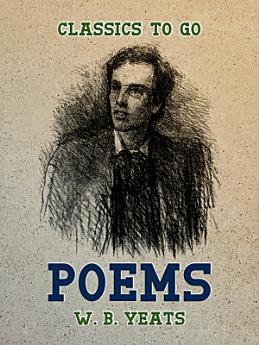Poems
Nov 2022 · Otbebookpublishing
Ebook
133
Pages
family_home
Eligible
info
reportRatings and reviews aren’t verified Learn More
About this ebook
As well as being one of the major literary figures of the twentieth century and the recipient of the 1923 Nobel Prize for Literature, William Butler Yeats (1865-1939) is the greatest lyric poet that Ireland has produced.
About the author
William Butler Yeats (1865-1939) stands as a towering figure in 20th-century literature, whose work bridged the Victorian and modernist eras. Born in Dublin, Ireland, Yeats was deeply influenced by the rich tapestry of Irish mythology and folklore, which permeated his poetry and plays. He co-founded the Abbey Theatre, a cornerstone of the Irish Literary Revival, aiming to foster a national literature that celebrated Ireland's cultural heritage.Yeats's early work was imbued with romanticism, but his style evolved, reflecting his engagement with contemporary political and social issues. A fervent nationalist, he was involved in the Irish independence movement, and his poetry often grappled with themes of identity and nationhood. His relationship with Maud Gonne, a revolutionary and muse, added a layer of personal and political complexity to his work.Controversially, Yeats's later years saw him dabble in mysticism and the occult, joining the Hermetic Order of the Golden Dawn. This esoteric interest influenced his symbolic and often enigmatic poetry, which continues to captivate readers and scholars alike. His revolutionary ideas extended to his literary style, where he experimented with modernist techniques, thereby influencing contemporaries like T.S. Eliot and Ezra Pound.Awarded the Nobel Prize in Literature in 1923, Yeats's legacy is not just in his poetic achievements but also in his role as a cultural nationalist and a modernist innovator. His work remains a testament to the power of poetry to capture the zeitgeist and to challenge and inspire future generations.
Rate this ebook
Tell us what you think.
Reading information
Smartphones and tablets
Install the Google Play Books app for Android and iPad/iPhone. It syncs automatically with your account and allows you to read online or offline wherever you are.
Laptops and computers
You can listen to audiobooks purchased on Google Play using your computer's web browser.
eReaders and other devices
To read on e-ink devices like Kobo eReaders, you'll need to download a file and transfer it to your device. Follow the detailed Help Center instructions to transfer the files to supported eReaders.








